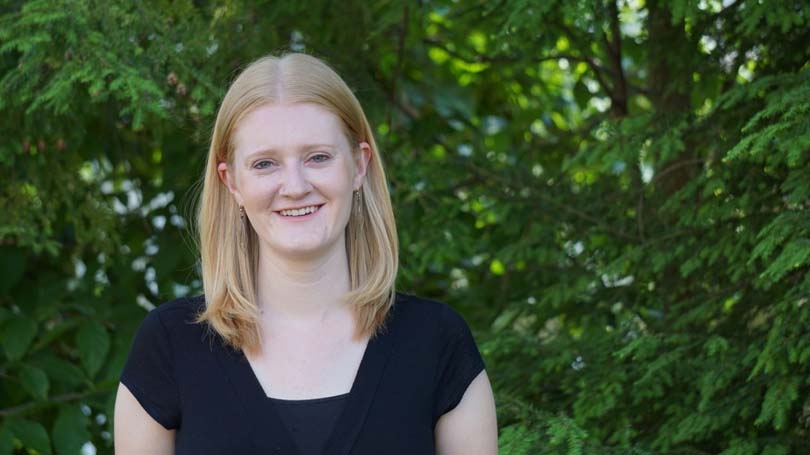
Science journalist, Shannon Hall, recently taught a two-part workshop to graduate students at DCAL
Give away the results at the start. This is the last and most difficult of science journalist Shannon Hall’s five “simple communication rules.” Over the course of a two-day workshop in communicating science, graduate students and postdocs struggled to internalize this rule, because when one thinks of beloved stories, one rarely starts by giving away the ending. But Shannon made sure that everyone at the workshop did internalize it by the end of the second day, because when trying to communicate science to the public and the media, there is simply no other option. If an audience knows the goal immediately, then they can be fascinated by the details. However, to truly communicate successfully, one must keep all of her rules in mind:
While everyone in the room readily accepted the first four points on the list, Shannon had a hard time swaying her audience regarding “spoiling” the results. Attendees spent the first day of the workshop studying good examples of journalists following the rules and bad examples of them being ignored (this latter article in an Internet Archive version, as the live version has since been edited). At the end of the day Shannon asked everyone to write a short, three paragraph piece about how they got into science or their biggest goof in science, all the while keeping her rules in mind.
The resulting stories (Rule #4), shared and peer-edited on the second day, were great. Everyone managed to share something interesting or introspective, all while following the rules… or, at least, four of them. Jargon was avoided, like vampires and sunlight (Rules #1 and #2). Everyone wrote in the active voice, and the passive voice was used by no one (Rule #3). However, absolutely no one gave away the results at the top. Shannon was surprised by the total strike-out, assuming at least one story would have done so. Everyone voiced their displeasure with that rule, clamoring that if the results are given away at the top, then audiences will have no reason to read on.
Shannon disabused the room of that impulsive thought, and encouraged everyone to forget long-form story telling as in books, TV, or movies. She reminded the group that they are all scientists who have read or written abstracts in scientific papers, and what is the point of an abstract if not to give away the results at the top? What clinched it, though, was when she asked participants to think about the most interesting story they had ever told. For instance, the tale of seeing an active volcano could be told in two separate ways:
In the first example, the writer is rushing through detail to get to the payoff. In the second example, since the payoff is known, the writer can spend time talking about how they almost missed their flight or the difficult hike. Knowing the outcome still allows tension and excitement to build as long as the story is well told. As that realization sunk in, everyone in the room could see Shannon’s eyes light up and hear the tension leave her voice. Mission accomplished – and she told us exactly what her goal was at the start.
Workshop participant, and Dartmouth Science, Technology, and Engineering Policy group president Nick Warren, recently had an OpEd published in the Valley News, using part of the work he created in the workshop.
Erek Alper's biggest science goof article can be read here.